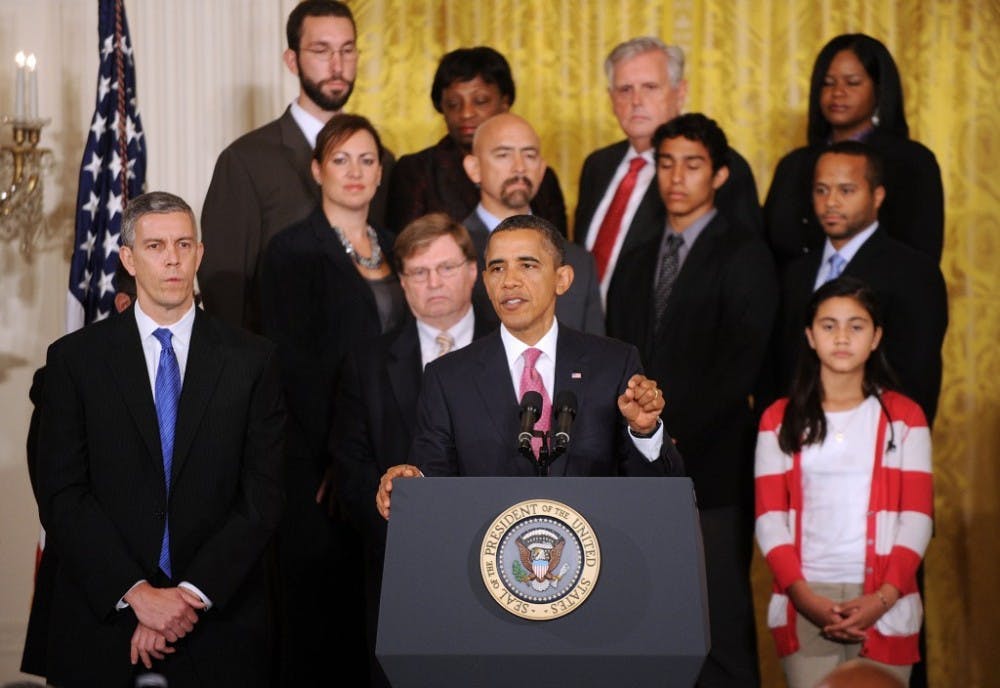The end of a law does not equal the end of a practice.
Eleven states have submitted a waiver for exemption from No Child Left Behind, as part of President Barack Obama’s proposed return to Elementary and Secondary Education Act, in turn, ending the current policy. Nevertheless schools are still striving to incorporate the same values expressed in the current law. Elon University’s education curriculum continues to emphasize the values detailed in No Child Left Behind, said David Cooper, Dean of the School of Education.
The Bush administration designed No Child Left Behind so all demographic groups would be able to succeed, Cooper said.
“At Elon, the education faculty has been offering for some time now a curriculum for teacher candidates that places an emphasis on equality and excellence, stressing culturally responsive pedagogy and differentiation to meet individual student needs,” Cooper said. “Elon’s programs are entirely consistent with the emphasis in NCLB.”
States sill still demonstrate student progress and equality, but the end of the law provides states with more autonomy regarding distribution of funds, according to Adam Short, lecturer of political science at Elon University.
The debate questions the role of the federal government in education, more than the role of education for each student, he said.
“The federal role in education has been augmented since No Child Left Behind,” Short said. “It is mostly the purview of state and local government. There is still a lot of policy and decision making that happens at the state level, but the federal government has taken a bigger role.”
The proposal developed from a realization that most states would not achieve the necessary progress required of No Child Left Behind by the 2014 deadline, which would result in a financial punishment. Of the 11 states that submitted the waiver, 10 have been approved. Although North Carolina did not participate in the first round of waivers, it is expected that the state will submit a wavier Feb. 28 during the second round, Short said.
“In order to obtain the waiver, states must demonstrate strict adherence to a number of accountability measures that are designed to assure that students are receiving school experiences of high quality,” Cooper said. “The waiver does not come with permission to relax.”
Previous state education policies and grant money received from Race to the Top, a federal fund dedicated to award states that have demonstrated improved education conditions, and have enabled North Carolina to make improvements expected for the waiver process, he said.
The waiver process facilitates the end of No Child Left Behind without requiring the divided Congress to vote the law forward, Short said.
“(The president) is acting on his own, but acting within the powers given to him by Congress,” he said.
Nevertheless, Short said he does not predict modification of the education law will severely influence the upcoming presidential election.
“Education is always going to be a bigger deal at the state level,” he said.


